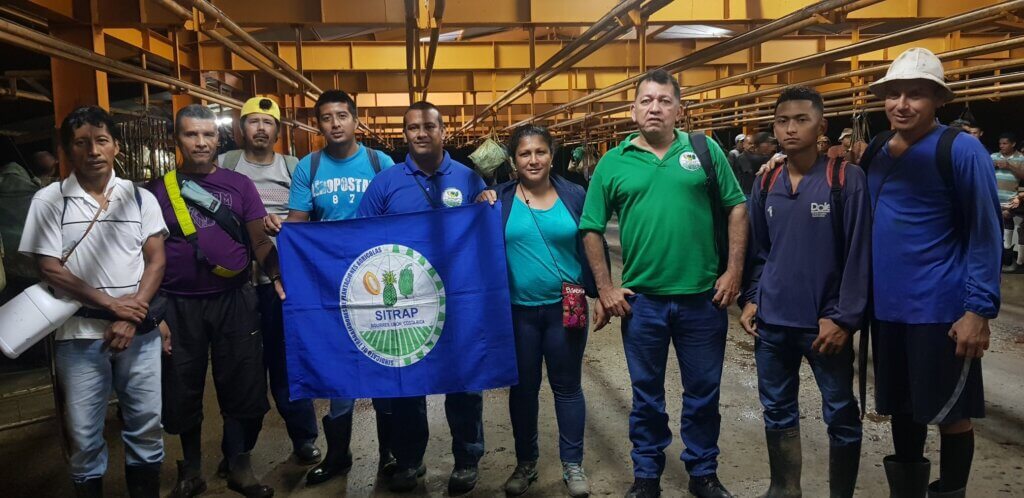Banana Link Project Officer, Holly Woodward-Davey, reports on the work that has been undertaken by our Costa Rican trade union partners thanks to funds donated by UK trade unions.
Costa Rican banana and pineapple workers face some of the world’s most exploitative and difficult working conditions, typified by long working hours, low pay and a backdrop of union hostility, not to mention the prevalence of discrimination and sexual harassment experienced by women workers, who typically still represent only a small fraction of the overwhelmingly male workforce.
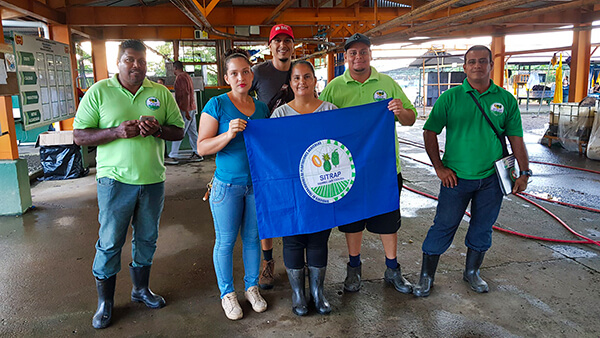
Support from UK trade unions
UNISON, Britain’s largest trade union, has been an enduring friend to these workers. Through their International Development Fund, support is provided to trade union movements in the global south to build capacity and represent the interests of local workers. These funds have helped Costa Rica’s Union of Agricultural Plantation Workers – SITRAP (for its Spanish acronym) – to make key advances in their work representing workers employed on the vast banana and pineapple plantations on the Costa Rican Caribbean Coast.
Costa Rica is the biggest supplier of pineapples and the second largest of bananas to the UK market. Production and export of Costa Rica bananas are dominated by Chiquita, Del Monte and Dole, and national company Grupo Acon. The industry directly employs more than 40,000 people.
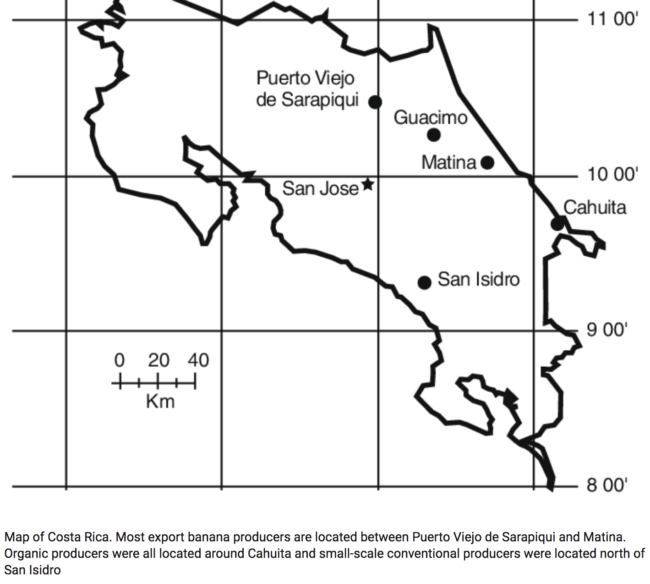 Source: Researchgate
Source: Researchgate
Meanwhile, Costa Rica’s pineapple sector employs about 30,000 people directly and over 100,00 indirectly, and generates exports of about one billion dollars a year, which is the equivalent of 10 per cent of the country’s total exports, making it the country’s main agricultural export.
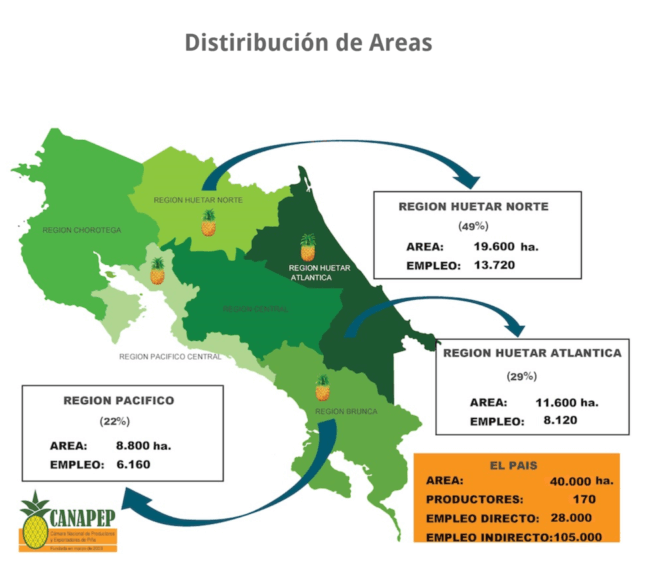
SITRAP’s growing presence
Since the implementation of the Procedural Reform Law in Costa Rica in 2016, unions have more effectively been able to take action against labour rights violations on the part of employers and, despite a widespread culture of union hostility, SITRAP, with the support of friends at the UNISON and the GMB, has made a number of key advances. SITRAP currently has a presence in over 50 banana and pineapple plantations belonging to Dole, Chiquita, Acon, Calinda, Fyffes, Matera, Pelon and Corbana.
Two years ago, in January 2019, the first collective bargaining agreement in 35 years was signed between an independent trade union (SITRAP) and a multinational fruit company (Bandeco, a subsidiary of Fresh Del Monte). And a year ago, SITRAP’s commitment to gender equity among banana and pineapple workers led to a boom in new membership of women plantation workers.
The huge increase in women members of the union follows the success of their continued community-level recruitment drive, at the heart of which is the understanding that union events must be welcoming not only to workers, but the wider community as well. As such, SITRAP continues to ensure that union events meet the practical requirements of workers with children by providing childcare. As a member of COLSIBA, The Latin American Coordinating Body of Banana and Agro-industrial Unions, SITRAP has committed to taking up all the recommendations of its Women’s Committee, covering a huge variety of considerations from employment opportunities to sexual harassment and gender based violence to parental leave and breast feeding. More information about the recruitment drive for women plantation workers can be found in Banana Link’s Case Study.
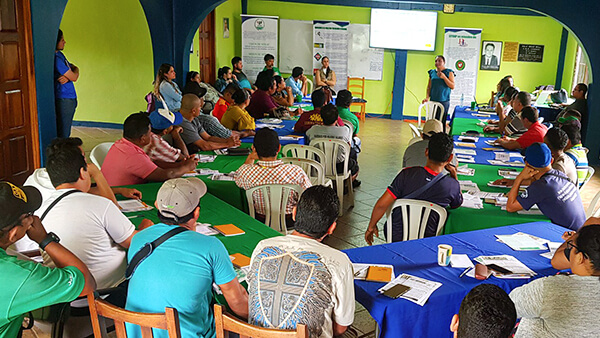
Covid-19 hits Costa Rica
In the last twelve months, the situation for Costa Rican plantation workers, like for many of the world’s workers, has been dramatically changed by the emergence of the COVID-19 pandemic. Workers at the bottom of agricultural supply chains have almost without exception been defined as ‘key workers’ and therefore been required to continue to work throughout various national lockdowns. These are the workers who have often borne the brunt of business costs associated with the pandemic. In some cases, the exceptional circumstances of 2020 and 2021 seem to have been seized as an opportunity by employers to erode hard-won labour rights.
In March the Costa Rican government pushed new legislation through the parliament, which the industry had been trying to promote for some time, making working hours and therefore remuneration much more flexible, and allowing employers to cut the working day (and pay) by 50 per cent or more, without compensation for workers.
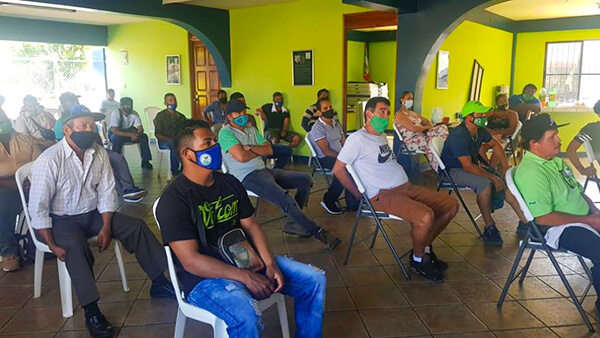
As a joint statement by Costa Rican public and private sector unions explained at the time: “This bill, far from giving us a solution to the problem facing the country, will only aggravate the situation, since it transfers the risks facing companies to their workers, when the crisis is the fault of neither party. In the face of such a crisis, it is the workers who are the most vulnerable and therefore require the most protection from the State.“
SITRAP achievements in 2020
Amid these concerns, UNISON’s support for SITRAP has ensured that the union has continued to make important progress. Key among the achievements of the last year are:
- The recruitment of approximately 450 new members.
The reinstatement of 16 workers following legal challenges on the grounds of unfair dismissal. - Conciliatory meetings held with Chiquita and with Jardín del Tigre, a subsidiary of Fyffes.
- Continued legal work with court proceedings covering work related illnesses and injuries, unfair dismissals and union discrimination among other issues.
- Rapid response to COVID-19 and its implications for workers occupational health and safety, including distribution of facemasks, dissemination of information for workers and holding companies to account for non-compliance with government occupational health and safety protocols.
- Education and training workshops with union representatives from Fyffes, Del Monte, Chiquita, Dole and a number of national producing companies on Occupational Health and Safety, Environmental Hygiene and Effective Union Communication during a Pandemic among other topics. (Further education and training workshops cancelled due to the pandemic.)
- Continued promotion of union membership, with 25,000 flyers distributed focusing on awareness around Labour Day, COVID-19 and worker salary.
Funding from Unison has also enabled SITRAP to adapt to the demands of the pandemic, by training it’s representatives in the use of online communications tools like Zoom, and to enable them to provide facemasks for their members.
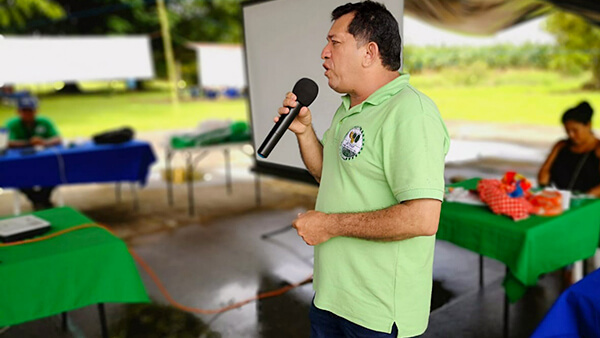
Didier Leiton, General secretary of SITRAP, writes,
“SITRAP would like to state our appreciation for all those who join our struggle, and who support our efforts to defend working people against exploitation and the violation of labour rights in the name of profit.
It has been a very complicated year due to the emergence of COVID-19. The pandemic has affected agricultural plantation workers more than most. Workers’ health and income have been affected and there has been an impact on labour relations due to a tendency for some business and state actors to take advantage of the pandemic to further their own agendas“.
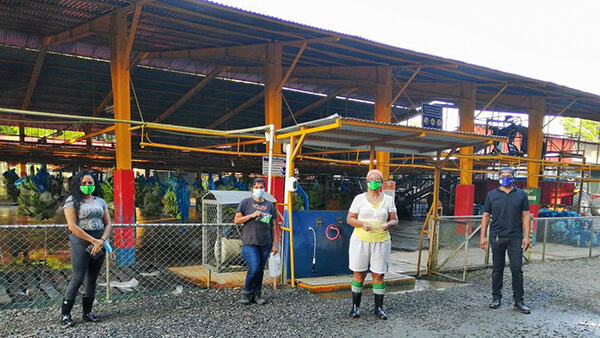
Photos: Sitrap
